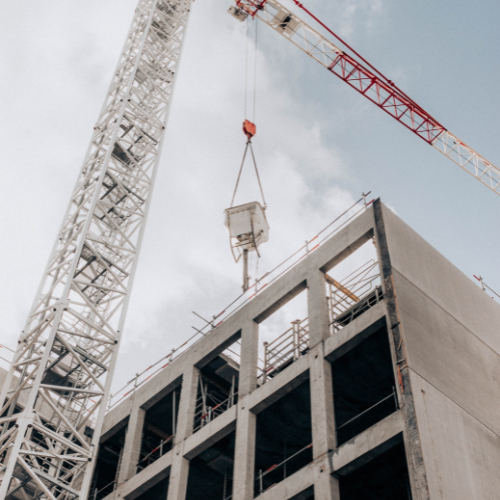Starting a construction company is a substantial undertaking that involves careful planning, compliance with regulations, and strategic decision-making. Here's a step-by-step guide to help you get started:

-
Business Plan:
- Develop a detailed business plan that outlines your construction company's vision, mission, goals, and strategies.
- Include financial projections, budget estimates, and a timeline for achieving milestones.
-
Legal Structure and Registration:
- Choose a legal structure for your company, such as a sole proprietorship, partnership, LLC (Limited Liability Company), or corporation.
- Register your business with the appropriate government authorities and obtain the necessary permits and licenses.
-
Business Name and Branding:
- Select a unique and memorable business name that reflects your construction brand.
- Create a professional brand identity, including a logo, website, and marketing materials.
-
Insurance and Bonding:
- Secure the necessary insurance coverage, including liability insurance and workers' compensation, to protect your business and employees.
- Consider obtaining construction bonds for projects that require them.
-
Financial Planning:
- Set up a business bank account to separate personal and business finances.
- Create a comprehensive financial plan that includes start-up capital, operating expenses, and cash flow projections.
-
Legal Compliance:
- Ensure your construction business complies with local, state, and federal regulations, including building codes, safety standards, and environmental regulations.
-
Equipment and Tools:
- Invest in the necessary construction equipment, tools, and vehicles based on the type of projects your company will undertake.
- Consider leasing or financing options to manage initial costs.
-
Safety Protocols:
- Develop and implement robust safety protocols and training programs to ensure the well-being of your employees and compliance with safety regulations.
-
Hiring and Staffing:
- Recruit skilled and experienced employees or subcontractors, including project managers, construction workers, and administrative staff.
- Verify that your team possesses the required licenses and certifications.
-
Suppliers and Materials:
- Establish relationships with reliable suppliers for construction materials and equipment.
- Negotiate favorable terms, pricing, and credit arrangements when necessary.
-
Estimating and Bidding:
- Develop a system for estimating project costs accurately and preparing competitive bids.
- Create a network for discovering and bidding on construction projects, which may involve local government contracts, private clients, or general contractors.
-
Contracts and Agreements:
- Draft clear and legally sound contracts for your construction projects. Consult with an attorney to ensure they protect your interests.
- Include project timelines, payment schedules, scope of work, and dispute resolution mechanisms in your contracts.
-
Project Management:
- Implement project management tools and software to streamline project planning, scheduling, and tracking.
- Monitor progress and maintain open communication with clients.
-
Marketing and Promotion:
- Develop a marketing strategy to promote your construction company through online channels, local advertising, and networking.
- Showcase past projects in a portfolio to demonstrate your capabilities and quality of work.
-
Quality Control:
- Implement strict quality control processes to ensure construction projects meet or exceed industry standards and client expectations.
-
Customer Relationships:
- Prioritize excellent customer service and communication to build long-lasting client relationships.
- Request feedback and use it to improve your services.
-
Scaling and Growth:
- Plan for the growth of your construction business by expanding services, entering new markets, or diversifying into related fields.
-
Safety and Environmental Compliance:
- Stay updated on safety and environmental regulations and incorporate them into your construction practices.
-
Networking and Partnerships:
- Build relationships with industry professionals, suppliers, and subcontractors for potential collaborations and referrals.
Starting a construction company requires substantial capital, industry knowledge, and a commitment to quality and safety. Seek guidance from industry experts, legal advisors, and financial professionals to navigate the complexities of the construction business successfully.









